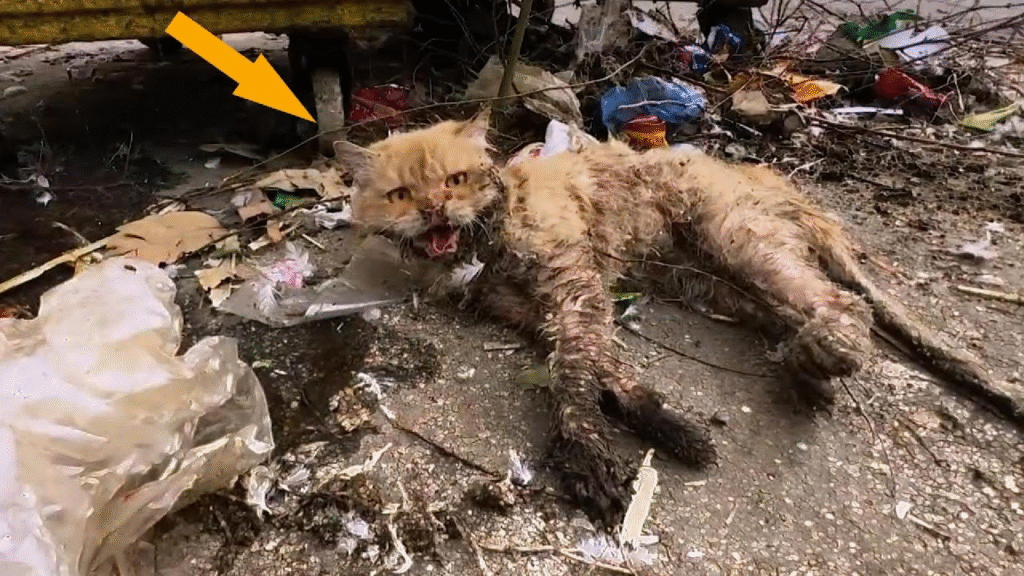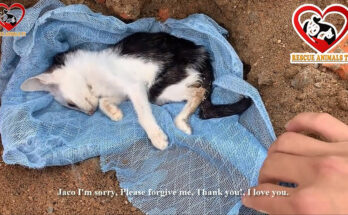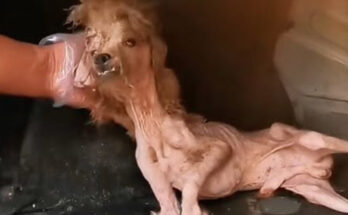The alley was silent except for the buzzing of flies and the distant clatter of bottles rolling in the wind. Near the trash bin, hidden between bags of discarded food and cardboard boxes, a faint meow broke the stillness. It was weak, trembling, almost too soft to hear.
Curious, I followed the sound and found her—a frail little cat, her fur matted and dirty, her body so thin her ribs showed clearly beneath her skin. Her eyes were wide but dulled by exhaustion and hunger. She lifted her head weakly, as if begging for mercy, before laying it back down with a sigh.
The sight pierced my heart. She had probably been searching for scraps, hoping to find something edible among the garbage. But the smell of rot told me she hadn’t been lucky. Carefully, I knelt beside her. “It’s okay, sweetheart,” I whispered, gently holding out my hand. She flinched at first, but when she sensed no harm, she pressed her fragile head against my fingers.
I wrapped her in an old towel I had in my bag and carried her home. She was so light, almost like carrying a bundle of feathers. At home, I offered her a bowl of warm water and some soft food. At first, she only licked cautiously, but soon hunger overtook her fear, and she ate with desperate urgency. Watching her tiny body regain a spark of life brought tears to my eyes.
Over the next few days, she slowly recovered. With every meal, her strength returned, and with every stroke of love, her trust deepened. The once-starving, forgotten cat beside the trash bin now purred loudly, curling into my lap as if she had always belonged there.
Rescuing her was not just about saving her life—it was about reminding myself that even the smallest act of kindness can turn despair into hope. She may have been abandoned by the world, but in my home, she found family, warmth, and love.



